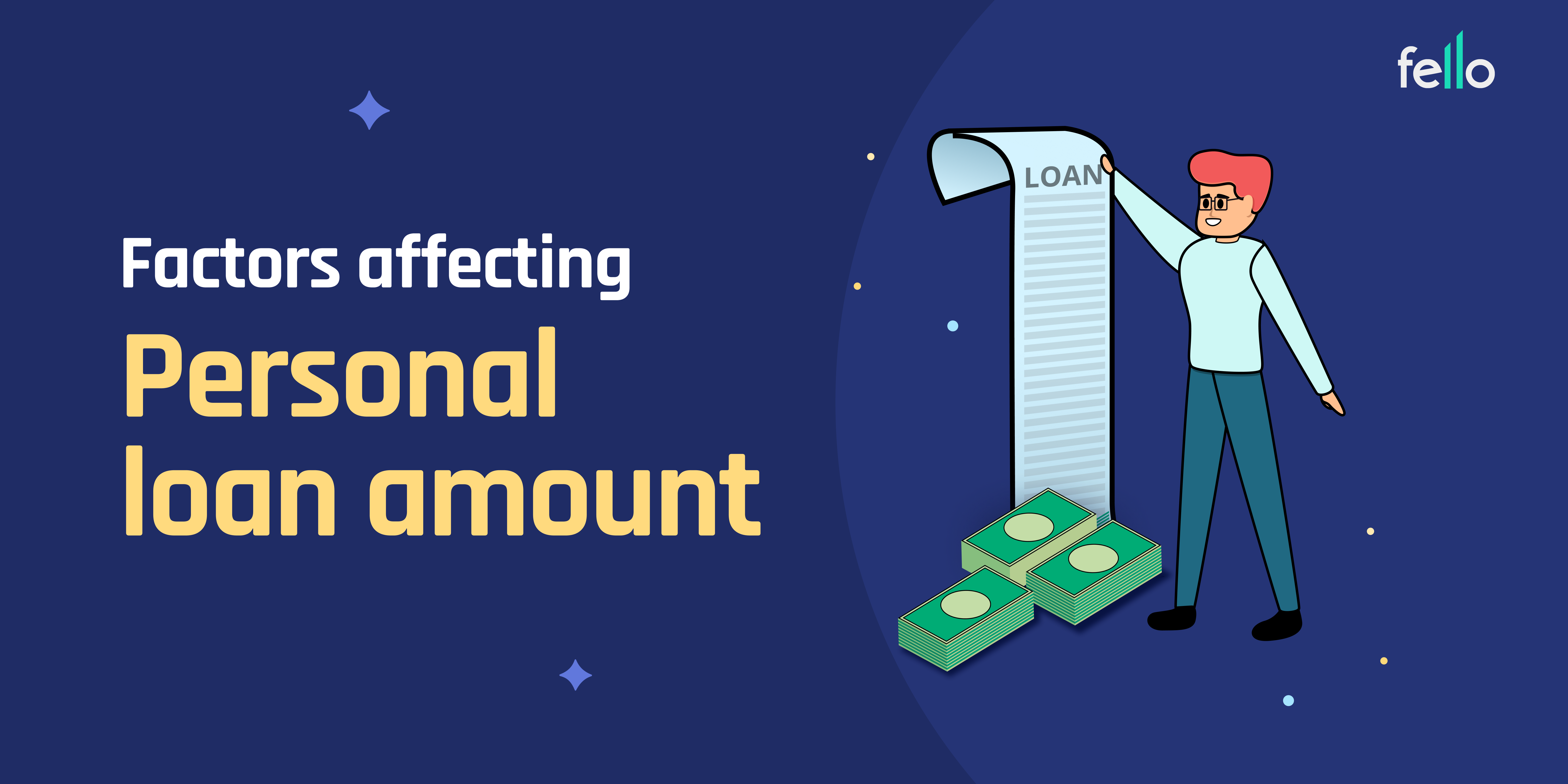Personal loans are one of the most convenient financial products to cover emergencies, big-ticket expenses, or consolidate debt. However, the amount you can borrow depends on several factors that lenders evaluate during the approval process. Understanding these factors affecting personal loan amount will help you maximize your eligibility and secure the funds you need.
This blog will explore the key factors that determine your loan amount and provide actionable tips to enhance your eligibility.
1. Credit Score
Your credit score is a major factor in determining both your loan amount and approval chances. A higher score, typically above 750, signals financial discipline and makes you eligible for larger loans at better interest rates.
- Low Credit Score: A score below 650 may result in a smaller loan amount or rejection.
- High Credit Score: Scores above 750 increase your borrowing capacity and reduce interest rates.
How to Improve Your Credit Score:
- Pay EMIs and credit card bills on time.
- Keep your credit utilization below 30%.
- Avoid frequent credit inquiries.
Related Read: How to Increase CIBIL Score from 600 to 750?
2. Income Level
Lenders evaluate your income to assess your repayment capacity. A higher and stable income assures lenders that you can handle larger loan amounts without defaulting.
- Salaried Employees: Steady income from a reputed employer improves your eligibility.
- Self-Employed Individuals: Income consistency, supported by bank statements and ITRs, is crucial.
Tip:
Provide additional income proofs, such as rental income or freelance earnings, to strengthen your application.
3. Existing Debt Obligations
Your existing debt, such as home loans, car loans, or credit card balances, plays a significant role in determining your loan eligibility. Lenders calculate your Fixed Obligations to Income Ratio (FOIR) to ensure you’re not over-leveraged.
- FOIR Above 50%: High debt obligations reduce your borrowing capacity.
- FOIR Below 30%: Low obligations indicate better repayment capacity, allowing higher loan amounts.
Related Read: How to Get a Personal Loan with Bad CIBIL?
4. Employment Stability
Your employment type, job stability, and employer reputation affect your loan amount eligibility. Lenders prefer borrowers with:
- Stable Employment: At least 1-2 years of continuous employment.
- Reputed Employers: Employees of MNCs or government organizations are considered low-risk.
- Self-Employment Track Record: Consistent business income over 3-5 years boosts eligibility.
5. Loan Tenure
The tenure you choose for your personal loan also impacts the loan amount. Longer tenures reduce monthly EMIs, making it easier to qualify for larger loans.
Example:
- Short Tenure (1-2 years): Higher EMIs, reducing loan eligibility.
- Long Tenure (3-5 years): Lower EMIs, increasing your borrowing capacity.
However, longer tenures result in higher total interest costs, so choose wisely.
6. Lender Policies
Different banks and NBFCs have unique policies and criteria for approving personal loans. While some may prioritize credit scores, others might focus on income or existing relationships.
Tip:
Research and compare lenders to find one that aligns with your profile. For detailed comparisons, read Experian vs. CIBIL vs Equifax: What Are the Differences and Which is Better?.
7. Age
Your age is another factor that lenders consider. Borrowers between the ages of 25 and 55 are generally favored because they’re in their prime earning years.
- Young Borrowers: Higher repayment capacity but less credit history.
- Older Borrowers: Lower repayment capacity but stable credit history.
Tip:
Start building your credit profile early to maximize eligibility when needed. Check How to Check CIBIL Score for Free to monitor your progress.
8. Loan Purpose
Some lenders consider the purpose of your personal loan. For instance:
- Medical Emergencies: Often approved quickly with minimal documentation.
- Travel or Luxury Purchases: May require additional scrutiny.
- Debt Consolidation: Shows financial discipline and is often viewed positively.
Tips to Maximize Your Loan Amount
- Maintain a Strong Credit Profile: Pay bills on time and reduce outstanding debts to improve your score.
- Choose the Right Lender: Compare offers from banks, NBFCs, and fintech platforms.
- Apply Jointly: Adding a co-applicant with a high income or good credit score can increase eligibility.
- Provide Accurate Documentation: Submit all required proofs, including income, employment, and KYC documents.
- Avoid Frequent Applications: Multiple applications can lower your credit score due to hard inquiries.
Conclusion
The factors affecting personal loan amount range from your credit score and income to debt obligations and loan tenure. By understanding these factors, you can strategically enhance your eligibility and secure a higher loan amount with better terms.
Start by evaluating your financial profile, improving your credit score, and comparing lenders. For more insights on improving your loan eligibility, read How Much CIBIL Score Is Required for a Home Loan? or What to Do When Your CIBIL Goes Down?. With careful planning, you can access the funds you need to meet your financial goals.

